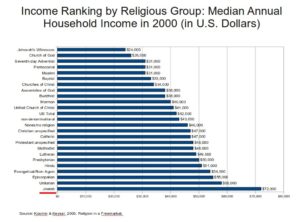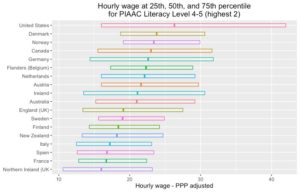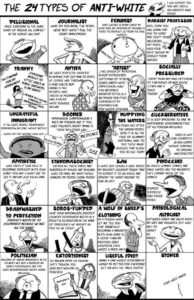Yoram Hazony writes:
For centuries, the politics of Western nations have been characterized by a struggle between two antithetical visions of world order: an order of free and independent nations, each pursuing the political good in accordance with its own traditions and understanding; and an order of peoples united under a single regime of law, promulgated and maintained by a single supra-national authority. The first vision is today most clearly represented by nations like India, Israel, Japan, Norway, South Korea, and Switzerland—and now by Britain, perhaps to be followed by others. The second vision is held by much of the leadership of the European Union, which affirmed its commitment to the concept of an “ever closer union” of peoples in the Stuttgart Declaration of 1981 and has proceeded since then to introduce EU laws and currency into most member nations, as well as requiring the free movement of populations among most member states.
The conflict between these two visions is as old as the West itself. The idea that the political order should be based on independent nations was an important feature of ancient Israelite thought as reflected in the Hebrew Bible (or “Old Testament”). And although Western civilization, for most of its history, has been dominated by dreams of universal empire, the presence of the Bible at the heart of this civilization has ensured that the idea of the self-determining, independent nation would be revived time and again.
Why is the Hebrew Bible so concerned with the independence of nations? The world of Israel’s prophets was dominated by a succession of imperial powers: Egypt, Babylonia, Assyria, and Persia, each giving way to the next. Despite their differences, each of these empires sought to impose a universal political order on mankind as a whole, the gods having sent them to suppress needless disputes among peoples and to create a unified international realm in which men could live together in peace and prosperity. “None hungered in my years or thirsted in them,” the Pharaoh Amenemhet I wrote a few centuries before Abraham. “Men dwelled in peace through that which I wrought.” And this was no idle boast. By ending warfare in vast regions and harnessing their populations to productive agricultural work, imperial powers were in fact able to bring to millions a relatively reliable peace and an end to the threat of starvation.
No wonder then that the imperial rulers of the ancient world saw it as their task, in the words of the Babylonian king Hamurabi, to “bring the four quarters of the world to obedience.” That obedience, after all, was what ensured salvation from war, disease, and starvation.
And yet, despite the obvious economic advantages of an Egyptian or Babylonian peace that would unify humanity, the Bible was born out of a deep-seated opposition to that very aim. To Israel’s prophets, Egypt was “the house of bondage,” and they spared no words in deploring the bloodshed and cruelty involved in imperial conquest and the imperial manner of governing, its recourse to slavery and murder and its expropriation of women and property. All of this, the Israelite prophets argued, stemmed from Egypt’s idolatry—from its submission to gods who would justify any sacrifice so long as it advanced the extension of the imperial realm of peace and kept the production of grain running at maximum capacity.
Was there a viable alternative to universal empire? The ancient Near East had much experience with localized political power in the form of city-states. But these were helpless before imperial armies and the ideology of universal empire that motivated them. It is in the Hebrew Bible that we find the first sustained presentation of a different possibility: a political order based on the independence of a nation living within limited borders alongside other independent nations.
By “nation,” I mean a people or group of peoples that are united—or that are capable of being united—around a shared history, language, or religion, permitting them to act effectively as a body for the common defense and other large-scale enterprises. The Bible systematically promotes the idea that members of a nation (Hebrew, goy) should regard one another as “brothers,” and the Mosaic law directs all Israelites to join in establishing what would today be called a national state. The king of such a state would be drawn “from among your brothers.” Its prophets, too, would be “from among you, from among your brothers.” And so would its priests, appointed to guard the traditional laws of the nation and teach them to the king “so that his thoughts not be lifted above his brothers.” Moreover, Moses sets boundaries for Israel, instructing his people to keep their hands off of the lands of neighboring kingdoms like Moav, Edom, and Ammon, which deserve their own independence. As he tells them in God’s name:
Take good heed of yourselves therefore. Meddle not with [the children of Esau], for I will not give you of their land. No, not so much as a foot’s breadth. Because I have given Mt. Seir to Esau for a possession. . . . Do not harass Moav, nor contend with them in battle, for I will not give you of their land for a possession, because I have given Ar to the children of Lot for a possession. . . . And when you come near, opposite the children of Ammon, harass them not, nor contend with them, for I will not give you of the land of the children of Ammon any possession, for I have given it to the children of Lot for a possession.
Nor are these passages unique. Throughout the Hebrew Bible, we find that the political aspiration of the prophets of Israel is not empire but a free nation living in justice and peace amid other free nations.
The Bible thus puts a new political conception on the table: a state of a single people that is united, self-governing, and uninterested in bringing its neighbors under its own rule. This state is governed not by foreigners responsible to a ruler in a distant land but by kings and governors, priests and prophets, drawn from the ranks of the nation itself: elites that are, for just this reason, thought to be better able to stay in touch with the needs of their own people, their “brothers,” especially the less fortunate among them.
In addition, because the Israelite king is merely one of the people, and not the representative of some abstract universal ambition, his powers can be circumscribed to prevent abuse. Unlike the kings of Egypt or Babylonia, the Israelite king under the Mosaic constitution is not empowered to make the laws, which are the heritage of his nation and not subject to his whim. Nor does he have the power to appoint the priesthood, thereby making law and religion subservient to him. In the same way, the Mosaic law limits the king’s right to tax and enslave the people, just as the limitations on Israel’s borders prevent the king from embracing the dream of universal conquest.
It is important to notice that the Israelites’ conception of the nation has nothing to do with biology, or what we call race. For biblical nations, everything depends on a shared understanding of history, language, and religion that is passed from parents to children, but which outsiders can join as well. Thus the book of Exodus teaches that there were many Egyptians who attached themselves to the Hebrew slaves in fleeing Egypt, and that they received the Ten Commandments (more accurately translated as the “Ten Precepts”) at Sinai with the rest of Israel. Similarly, Moses invites the Midianite sheikh Jethro to join the Jewish people. And Ruth the Moabite becomes part of Israel by declaring “your people will be my people and your God will be my God”—her son being the forefather of King David himself.
But the ability of Israel to bring foreign-born individuals into its ranks always depends on these individuals’ willingness to accept Israel’s God, its view of history, and its laws. Without embracing these elements of the national identity, foreigners will not be able to contribute to Israel’s cohesion and strength in times of hardship. They will not be part of the Israelite nation.



